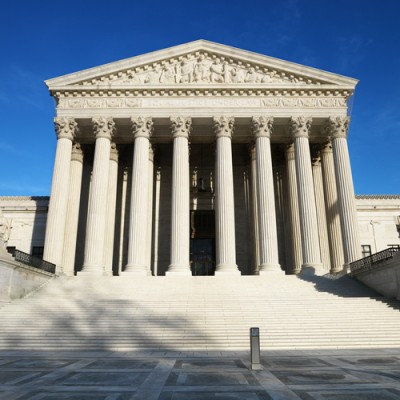Law prof sees 'nuclear option' bright side: More interesting SCOTUS nominees

The era of bland and noncontroversial U.S. Supreme Court nominees may be coming to an end. And that may be a good thing. That’s the observation of Harvard law professor Noah Feldman, who sees a bright side to the Senate’s decision Thursday to invoke the “nuclear option” to allow for a vote on Supreme Court nominee Neil Gorsuch.
His opinion column is at Bloomberg View.
The “nuclear option” is a change in Senate rules that allowed Republicans to end a filibuster and schedule a Friday vote on Gorsuch. (The vote is expected to take place midday Friday, the Associated Press reports.) The change reduced the number of votes needed to end filibusters on Supreme Court nominees from 60 to a simple majority.
Feldman acknowledges he believes the Senate should have considered President Obama’s nominee, Merrick Garland, and should have confirmed him to the court. He agrees that Gorsuch is comparably qualified. While he dislikes the sequence of events, he asserts he is happy that the filibuster has died.
“The filibuster has cast a long shadow over the Supreme Court confirmation process,” he writes. “It is one reason nominees have morphed from quirky, brilliant, flawed, controversial political figures into cautious, careful, qualified and essentially perfect human beings like Garland and Gorsuch. Now is the time to bring back the all-too-human nominee” who can be confirmed along party lines, without help from the opposing party, he writes.
“This will bring us some duds, to be sure, and possible even some wackos,” he writes. “But it could also bring us some great justices—and that’s a trade that, in the light of Supreme Court history, I’m willing to make.”
He cites several examples of “profoundly flawed” Supreme Court nominees who went on to achieve great things. Justice Hugo Black was once a member of the Ku Klux Klan, but he went on to become a staunch supporter of desegregation, Feldman says. And Justice Robert Jackson, who was attorney general for Franklin Delano Roosevelt, went on to defy FDR by dissenting in the Korematsu case upholding the internment of Japanese Americans.
“I hope that Justices John Roberts, Samuel Alito, Sonia Sotomayor and Elena Kagan—recent products of our age of nomination caution—will go down in history as great,” Feldman writes. “But I wouldn’t count on it. Greatness involves risk, and the filibuster threat has helped keep judicial nominees essentially riskless.”
Updated April 7 to note expected time of Gorsuch vote.



